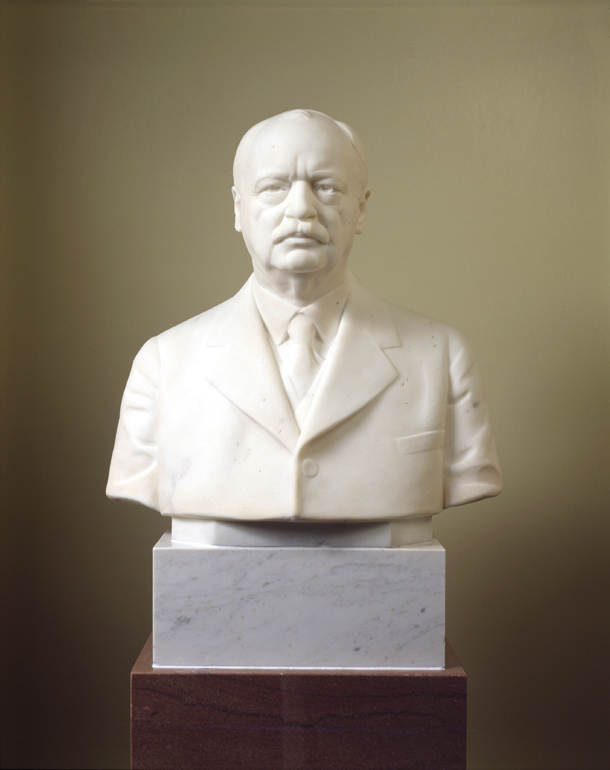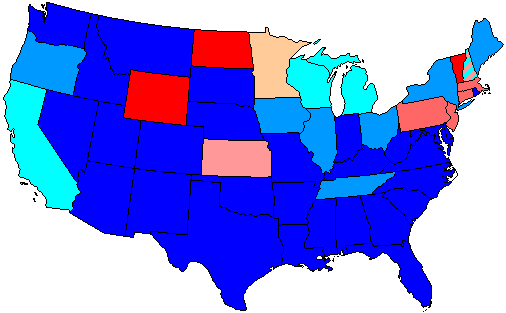|
Seventy-second United States Congress
The 72nd United States Congress was a meeting of the legislative branch of the United States federal government, consisting of the United States Senate and the United States House of Representatives. It met in Washington, D.C. from March 4, 1931, to March 4, 1933, during the last two years of Herbert Hoover's presidency. The apportionment of seats in this House of Representatives was based on the 1910 United States census. The Senate had a Republican majority. The House started with a very slim Republican majority, but by the time it first met in December 1931, the Democrats had gained a majority through special elections. Major events * Ongoing: Great Depression * January 12, 1932: Hattie Wyatt Caraway of Arkansas became the first woman elected to the United States Senate. ( Rebecca Latimer Felton of Georgia had been appointed to fill a vacancy in 1922) Caraway had won a special election to fill the remaining months of the term of her late husband, Senator Thaddeus Cara ... [...More Info...] [...Related Items...] OR: [Wikipedia] [Google] [Baidu] |
Charles Curtis
Charles Curtis (January 25, 1860 – February 8, 1936) was the 31st vice president of the United States from 1929 to 1933 under President Herbert Hoover. He was the Senate Majority Leader from 1924 to 1929. An enrolled member of the Kaw Nation born in the Kansas Territory, Curtis was the first Native American to serve in the United States Congress, where he served in the United States House of Representatives and Senate before becoming Senate Majority Leader. Curtis also was the first and to date only Native American and first multiracial person to serve as vice president. Curtis believed that Native Americans could benefit from mainstream education and assimilation. He entered political life when he was 32 years old and won several terms from his district in Topeka, Kansas, beginning in 1892 as a Republican to the U.S. House of Representatives. There, he sponsored and helped pass the Curtis Act of 1898, which extended the Dawes Act to the Five Civilized Tribes of the In ... [...More Info...] [...Related Items...] OR: [Wikipedia] [Google] [Baidu] |
1932 United States Presidential Election
United States presidential election, Presidential elections were held in the United States on November 8, 1932. Against the backdrop of the Great Depression, the History of the Republican Party (United States), Republican ticket of incumbent President Herbert Hoover and incumbent Vice President Charles Curtis were defeated in a Landslide victory, landslide by the History of the Democratic Party (United States), Democratic ticket of Franklin D. Roosevelt, the governor of New York and John Nance Garner, the Speaker of the United States House of Representatives, Speaker of the House This realigning election marked the effective end of the Fourth Party System, which had been dominated by Republicans, and the beginning of an era of Democratic dominance under the New Deal coalition. Despite disastrous economic conditions due to the Great Depression, Hoover faced little opposition at the 1932 Republican National Convention. Roosevelt was widely considered the front-runner at the start o ... [...More Info...] [...Related Items...] OR: [Wikipedia] [Google] [Baidu] |
Federal Home Loan Bank Act
The Federal Home Loan Bank Act, , is a United States federal law passed under President Herbert Hoover in order to lower the cost of home ownership. It established the Federal Home Loan Bank Board to charter and supervise federal savings and loan institutions. It also created the Federal Home Loan Banks which lend to building and loan associations, cooperative banks, homestead associations, insurance companies, savings banks, community development financial institutions, and insured depository institutions in order to finance home mortgages. Amendments Successful The act was notably amended by Financial Institutions Reform, Recovery and Enforcement Act of 1989, which transferred regulation of thrifts to the Office of Thrift Supervision. Proposed On November 21, 2013, Rep. Steve Stivers introduced the bill To amend the Federal Home Loan Bank Act to authorize privately insured credit unions to become members of a Federal home loan bank (H.R. 3584; 113th Congress) into the Unit ... [...More Info...] [...Related Items...] OR: [Wikipedia] [Google] [Baidu] |
Emergency Relief And Construction Act
The Emergency Relief and Construction Act (ch. 520, , enacted July 21, 1932), was the United States's first major-relief legislation, enabled under Herbert Hoover and later adopted and expanded by Franklin D. Roosevelt as part of his New Deal. The Emergency Relief and Construction Act was an amendment to the Reconstruction Finance Corporation Act which was signed on January 22, 1932. It created the Reconstruction Finance Corporation which released funds for public works projects across the country. The Brooklyn Navy Yard received an allotment of $880,000, marked for specific projects such as $215,000 for repairs and the maintenance of roofs, waterfront quays and docks, and Yard's railroad system. The biggest chunk, $855,000, was designated for a major overhaul of the power plant, to put in a new turbo generator, piping, boilers, and other engines. The Act was designed to be a temporary means of providing employment and all the positions created in the navy yard to service the ... [...More Info...] [...Related Items...] OR: [Wikipedia] [Google] [Baidu] |
Economy Act Of 1932
The Economy Act of 1932 is an Act of Congress that established the purchasing authority of the federal government. Title VI of this act authorized heads of executive departments, establishments, bureaus, and offices to place orders with any other such Federal agency unless the requisitioned goods or services could be acquired as conveniently or more cheaply from the private sector. It was signed in the final days of the Herbert Hoover administration in February 1933. Section 213 Section 213 of the Economy Act of 1932 was controversial because it required the government to fire one member of each married couple working in government. The original bill called for the dismissal of wives over husbands, however the text of the bill was changed before finalization due to “fear, on the part of legislators, of the political effect, if discrimination against women were otherwise so clearly and forcibly shown.” The wife's salary was characterized as “pin money” by Frances Perkins, ... [...More Info...] [...Related Items...] OR: [Wikipedia] [Google] [Baidu] |
Federal Kidnapping Act
Following the historic Lindbergh kidnapping (the abduction and murder of Charles Lindbergh's toddler son), the United States Congress passed a federal kidnapping statute—known as the Federal Kidnapping Act, (a)(1) (popularly known as the Lindbergh Law, or Little Lindbergh Law)—which was intended to let federal authorities step in and pursue kidnappers once they had crossed state lines with their victim. The act was first proposed in December 1931 by Missouri Senator Roscoe Conkling Patterson, who pointed to several recent kidnappings in Missouri in calling for a federal solution. Initial resistance to Patterson's proposal was based on concerns over funding and state's rights. Consideration of the law was revived following the kidnapping of Howard Woolverton in late January 1932. Woolverton's kidnapping featured prominently in several newspaper series researched and prepared in the weeks following his abduction, and were quite possibly inspired by it. Two such projects, by Br ... [...More Info...] [...Related Items...] OR: [Wikipedia] [Google] [Baidu] |
Revenue Act Of 1932
The Revenue Act of 1932 (June 6, 1932, ch. 209, ) raised United States tax rates across the board, with the rate on top incomes rising from 25 percent to 63 percent. The estate tax was doubled and corporate taxes were raised by almost 15 percent. Taxable Items included dye, chewing gum, furs, soft drinks, and sporting goods; firearms, shells, and cartridges; coal, coke, and copper ore; telegraph, telephone, cable, and radio dispatches; and checks, jewelry, matches, refrigerators, stamps, and toiletries, and this act enacted one of the first taxes on gasoline. The provisions of the act applied to the taxable year of 1932 and all subsequent taxable years. It was signed into law by President Herbert Hoover Herbert Clark Hoover (August 10, 1874 – October 20, 1964) was the 31st president of the United States, serving from 1929 to 1933. A wealthy mining engineer before his presidency, Hoover led the wartime Commission for Relief in Belgium and .... Tax on Corporations A r ... [...More Info...] [...Related Items...] OR: [Wikipedia] [Google] [Baidu] |
Reconstruction Finance Corporation
The Reconstruction Finance Corporation (RFC) was an Independent agencies of the United States government, independent agency of the United States federal government that served as a lender of last resort to US banks and businesses. Established in 1932 by the Presidency of Herbert Hoover, Hoover administration to restore public confidence in the economy and banking to their pre-Great Depression in the United States, Depression levels, the RFC provided financial support to state and local governments, Recapitalization, recapitalized banks to prevent bank failures and stimulate lending, and made loans to railroads, mortgage associations, and other large businesses. The Presidency of Franklin D. Roosevelt, first and second terms, Roosevelt administration's New Deal reforms expanded the agency, enabling it to direct disaster relief funds and provide loans for agriculture, exports, and housing. The RFC closed in 1957 when prosperity had been restored and for-profit private financial in ... [...More Info...] [...Related Items...] OR: [Wikipedia] [Google] [Baidu] |
1932 United States House Of Representatives Elections
The 1932 United States House of Representatives elections were elections for the United States House of Representatives to elect members to serve in the 73rd United States Congress. They were held for the most part on November 8, 1932, while Maine held theirs on September 12. They coincided with the landslide election of President Franklin D. Roosevelt. The inability of Herbert Hoover to deal with the Great Depression was the main issue surrounding this election, with his overwhelming unpopularity causing his Republican Party to lose 101 seats to Roosevelt's Democratic Party and the small Farmer–Labor Party, as the Democrats expanded the majority they had gained through special elections to a commanding level. This round of elections was seen as a referendum on the once popular Republican business practices, which were eschewed for new, more liberal Democratic ideas. This was the first time since 1894 (and the last time as of ) that any party suffered triple-digit losses, and ... [...More Info...] [...Related Items...] OR: [Wikipedia] [Google] [Baidu] |



